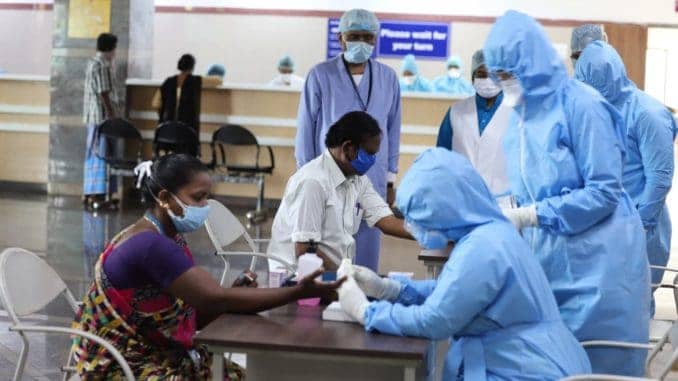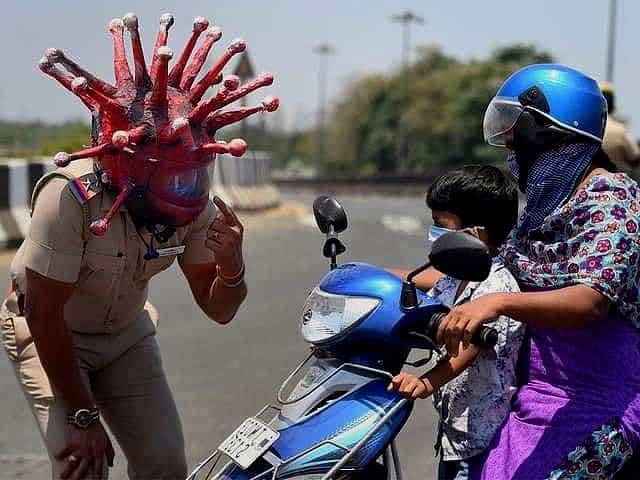On October 2nd last year, Neha Jaiswal, woke up with a stiff back, severe body ache and mild fever. The fever subsided the next day but other symptoms persisted. On the fourth day, her doctor advised a COVID test, which came out positive. She was advised complete rest and home quarantine for 14 days. After a week, the only symptom she showed was fatigue, which seemed to get worse with each passing day.
During the second week, Neha, a content writer, developed severe migraine along with the fatigue. Then her blood pressure dropped rapidly. And though she was on complete rest, was eating nutritious food and keeping herself hydrated, the severe fatigue in her limbs just would not go away. A repeat COVID test came negative on the 17th day but she still felt pain in her muscles, which, the physician told her, was the result of inflammation.
Over the next few days, her condition worsened with frequent episodes of dizziness. “My head used to spin like a cartwheel,” recalls Neha. “Worse, after short activity, both my hands would start trembling. I did not know what was happening to me”.
Her doctor, now himself worried, recommended a brain MRI which showed no abnormality. “I consulted neurologists, psychologists, physicians for a second opinion. They all told me that there was nothing much they could do. I felt helpless wondering will I ever feel normal again? And what if I lose my ability to write?”
Fortunately, 12 weeks later, most of Neha’s symptoms had subsided. Today she feels much better. Slowly getting back to her normal ways.
Read more: Struggling to book or reschedule a slot for the COVID vaccine? Read this
Post-infection condition
What Neha suffered from has since been termed the Long COVID, where symptoms such as fatigue, shortness of breath, brain fog, sleep disorders, mild diarrhoea, anxiety and depression can persist for months and can range from mild to incapacitating.
Most people who test positive for COVID get better in four weeks. But for some like Neha, post COVID recovery takes much longer.
In the initial stages of the pandemic, doctors and scientists were focussed on immediate treatment and reducing mortality among the seriously infected. But now they believe there is a need to develop treatment therapies for Long COVID – or in medical terms, post-COVID sequela.
The most common of all post–COVID symptoms is Chronic Fatigue Syndrome. “Some patients show unusual neurological symptoms, while others show inflammation in muscles,” says Dr Rajesh Gupta, assistant director, department of pulmonology, Fortis Hospital, Noida. “We realised that hospital care was not enough, and patients needed long-term care. So, we started post-COVID clinic every Thursday”.
Doctors say there are a good number of people who face post- COVID symptoms; however, in most patients, they usually subside in 6-8 weeks. These patients are advised gradual exercise, a diet rich in protein and green leafy vegetables, fresh fruits, and sometimes multi-vitamins.
“But a small percentage, less than 5 percent, may suffer from significant irreversible damage to the organs,” said Dr Randeep Guleria, director, All India Institute of Medical Science (AIIMS). “This happens in people who develop severe pneumonia, or lung fibrosis. These people take longer to recover and may require long-term oxygen therapy as they face breathlessness even after mild activity. But even such patients generally recover in 8-10 weeks”.
Obviously Neha’s case is not unusual, though rare. “One of my patients remained on high flow oxygen for two months after COVID,” added Dr Guleria. “He recovered gradually. Similarly, some people develop heart problems such as weakening of the heart muscles, some even suffer a stroke. Though most patients recover, in a small percentage of patients residual damage remains, for which we need to develop a rehabilitation program”.
Read more: Get vaccinated, do not lower guard: What doctors are telling us
On your road to recovery
Nutrition:
- A high protein, fibre-rich diet.
- 5-6 servings of fruits and vegetables.
- A fistful of nuts and seeds.
- Warm hydration 4-5 litres every day. Include vegetable soup, water infused with herbs, chia seeds, raisins, dates, or fresh citrus fruits.
- Vit B, C, D, and Zinc supplements.
- Say no to sugar.
Exercise:
- Start slow, with low-intensity exercise
- Stretching exercise are good for muscle strengthening.
- Breathing exercises are vital for improving lung health.
- Avoid exercising in polluted environment.
- Don’t overdo. Take adequate rest.
Vaccination:
Take the COVID vaccine when your turn comes. A vaccine will help reduce the severity of the disease and will bring down COVID-related hospitalisation and mortality. A less severe disease means lesser impact on the organs, and an early recovery.
“Brain fog”
Doctors say that in some patients the brain, too, may show long-lasting impact of COVID. It is not uncommon for these patients to complain about feeling confused, or lost or being unable to concentrate—a condition that has come to be termed ‘brain fog.’ Besides, a few patients develop psychiatric issues such as anxiety, insomnia or depression for which they may require psychotherapy, medication, or both.
“The pandemic has created this fear of unknown consequences of the disease, which could start with the loneliness one faces during the quarantine,” says Dr Nikhil Modi, a COVID expert at Indraprastha Apollo Hospital, New Delhi.
One of his young patients, says Modi, developed suicidal symptoms post-COVID, though his family says that he had no psychiatric issues before COVID. “While we are trying to understand various reasons for such psychological manifestations of the disease, we now know that in some cases improper medical treatment can lead to such severe post-COVID symptoms,” adds Dr Modi. “For example, some steroids, if not given properly, can cause more harm than good to the patient”.
The rehabilitation programme for patients suffering from Long COVID includes proper medication for the symptoms they exhibit, proper nutrition and exercises to improve lung health, counselling, physiotherapy, and psychotherapy.
The essentials
A physician or medical specialist can manage most of the long-COVID symptoms. However, Dr Samiran Panda, head, Department of Epidemiology, ICMR says that there are 4As that a patient needs to keep in mind when recovering from Long-COVID:
- Accept – that you, and anyone for that matter, can contract a highly contagious disease such as COVID.
- Acclimatise – Be prepared to deal with the symptoms and side-effects as you may take some time to get back to your old self
- Associate – Get in touch with those who have recovered from COVID. It will help you overcome the fears or doubts you may have about your own recovery; and lastly,
- Avoid – taking any additional medicine without consulting your doctors. Many people start taking various OTC drugs such as immunity boosters which can adversely interact with your regular medication.
Diet plays an important role in the recovery process giving the body energy to fight the infection and helping it replace damaged cells with new ones. A COVID- patient requires warm-hydration and a high-quality protein and vitamin-rich diet. Protein food such as eggs, dal, chicken, fish, and milk and milk products, along with 5-6 servings of fresh fruits and vegetables, nuts, vit b, C, D and zinc supplements are essential.
Read more: When Pune has almost as many COVID cases as Chennai, can we blame density alone?
“Before supplementing my patients’ daily diet with additional food items, I delete sugar from it as it limits the absorption of other nutrients,” says Priyanka Rohtagi, nutritionist, Indraprastha Apollo Hospital, Delhi. Certain foods, she adds, has healing properties and help manage symptoms. “In patients who develop muscle inflammation, a fistful of seeds of muskmelon, sunflower, pumpkin, watermelon with dates is recommended.”
Similarly, mild exercise improves blood circulation allowing better absorption of the nutrients and removal of toxins. But one should not overstress oneself. Moderation is the key as adequate rest is equally crucial. As is the need to give yourself time to recover. And staying positive.
Read more:


Very wellresearched writeup and welltimed too